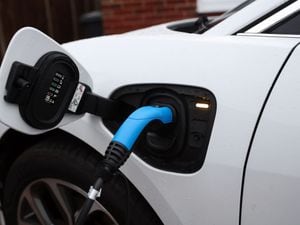On-street residential EV charging in need of ‘urgent’ boost, says AA
New data shows just 107 local authorities have successfully applied for money from on-street charging scheme.

An urgent boost in the number of on-street chargers is being called for to avoid ‘huge blackholes’ in residential charging.
New data from the Department for Transport (DfT) shows that just 107 local authorities across the UK have successfully applied to the On-Street Residential Chargepoint Scheme, with only 2,869 chargepoints installed since the scheme was established in 2017.
According to government data, there are currently 398 local authorities in the UK, meaning that just over a quarter have successfully applied for the scheme.
The initiative gives civic bodies access to grants that can be put towards getting and installing chargepoints in residential areas.
Funding for an additional 9,543 chargers has been approved, with the aim for these to be installed over the coming years.
The AA says this means there are ‘huge blackholes’ across the country where drivers without off-street residential parking have to rely on public chargers or workplace charging.
Jack Cousens, head of roads policy for the AA, said: “Drivers without dedicated off-street parking looking to switch to electric cars want to have the option of cheaper, affordable charging close to home rather than be reliant on the rapid network.
“The transition to electric needs to convince people that they can easily find a charge, but we need a mix of charging speeds to make life simple for everyone. But there are huge swathes of the country without any on-street charging and that needs to be rectified urgently.”
The scheme is available to all UK local authorities to fund up to 60 per cent of the capital costs of installing on-street chargers. It aims to ensure that drivers without access to off-street parking can still use reliable and affordable charging points. Up until April 1, the scheme had covered up to 75 per cent of the costs.
Cousens added: “Earlier this year, the government said it would need a minimum of 125,000 on-street chargepoints and acknowledged that the current progression in this area was too slow. Very little has changed in order to meet this target.
“So much focus has been placed on the rapid and ultra-rapid network, but many will be crying out for action closer to home. We are also concerned that rural areas could be left miles behind, as on-street charging is often considered to be just an urban problem.”





